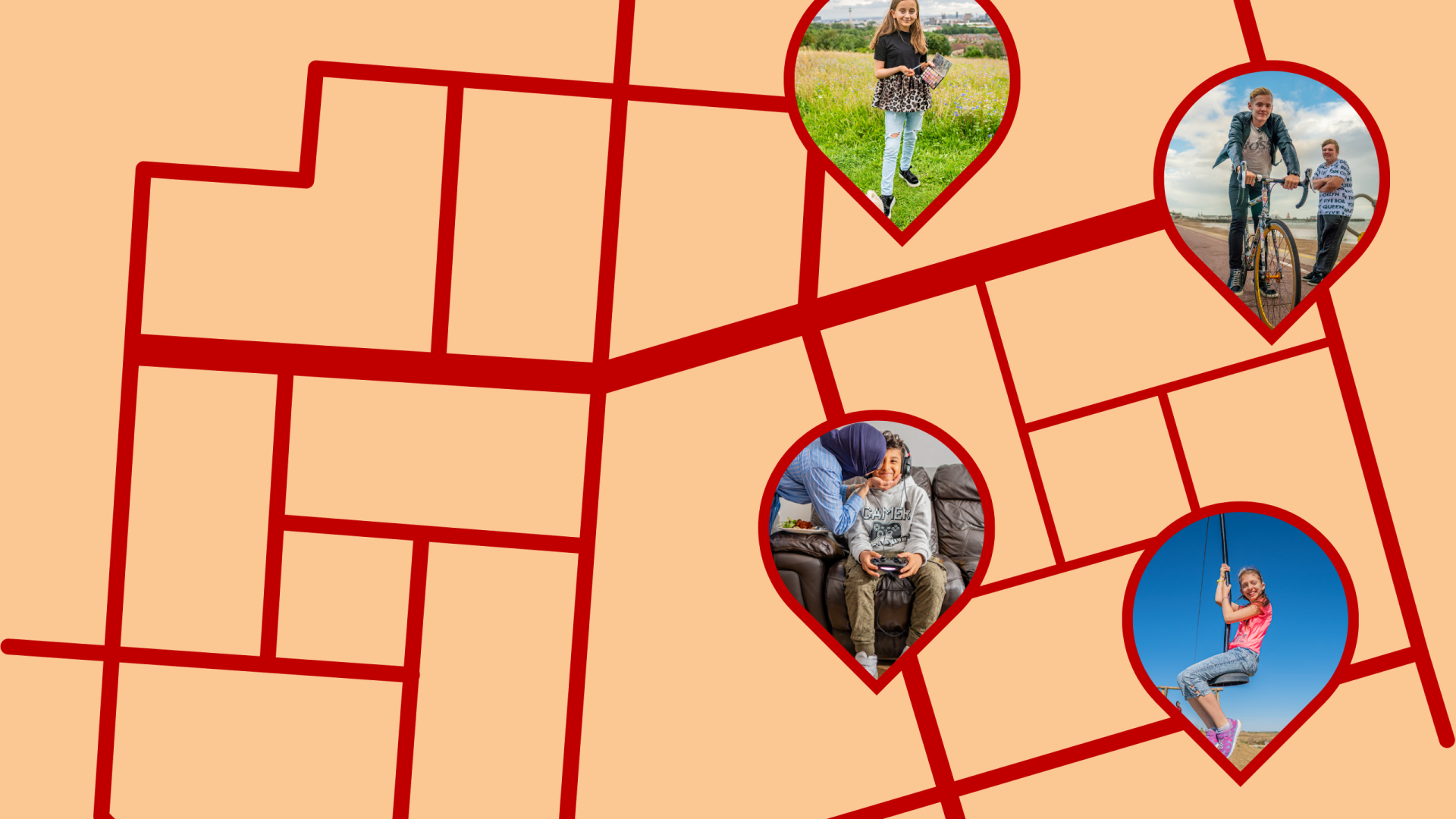
Not just dots on a map: The key to getting place-based interventions right
Data is crucial in helping us to narrow down where we are most needed, but it can only tell us so much.

Data is crucial in helping us to narrow down where we are most needed, but it can only tell us so much.
IntoUniversity works in communities with rich and unique histories and cultures. While they are all facing similar barriers to education, it is important for us to understand the local context so that we can best serve the community when setting up a new centre.
A part of our set-up process, called ‘community consultation’, adds to our robust research by getting as many perspectives as possible on the area. This consists of formal interviews and informal conversations with teachers, community leaders and organisations who know the neighbourhood and its young people. Working with these partners can help to address inaccurate perceptions of areas as well as help our teams understand how best to reach the young people who need us most.
In 2022, we opened our first learning centre in Great Yarmouth, a seaside town on the Norfolk coast. The community consultation for our Great Yarmouth centre started well in advance of the centre opening with a local Headteacher and a local Vicar. We learned that Great Yarmouth is a uniquely isolated town, not only is it difficult to access other areas of the country, but many families struggle to access opportunities in Norwich and within the town itself due to the presence of the River Yare, low car ownership and lack of public transport.
Members of the community shared how important it was that our future learning centre was centrally located to minimise any barriers for young people to access our support. That is how we found ourselves opening our first centre based in a shopping centre in the centre of town.
Amy, our Centre Leader in Great Yarmouth, describes the importance of the centre’s location.
“Our location means young people from across Great Yarmouth can access our centre by walking, cycling or using one of the local bus routes. The shopping centre is a well known destination for many in the town and has become a true community hub with our neighbours hosting an art gallery, community groups, school uniform pop ups, and refugee and asylum seeker support. The relationships built during the feasibility stage meant no time was wasted in actioning our programmes and making a difference from day one.”
In Peterborough, as well as our university partner, Anglia Ruskin University, making introductions to those in the local community, we also utilised our extensive staff network. Our Oxbridge Programme Manager, Amber-Page Moss had previously been a Teach First teacher in a Secondary school in Peterborough. Amber-Page put us in contact with local grassroots organisations who shared their take on the challenges facing the residents of the city.
Peterborough was a designated area for asylum seekers in the past and now has a very diverse population with many residents having English as an additional language (EAL); in fact, IntoUniversity Peterborough has one of the highest rates of EAL students in our network. When we spoke to local Primary schools, the teachers said that parent engagement can be very difficult for this reason, but equally we heard that young people are unlikely to engage with the centre over the long term without engagement with parents and carers.
Jess, our Centre Leader in Peterborough, explains how they used this to inform their Academic Support recruitment plan.
“We recruited students for Academic Support during our Secondary and Primary FOCUS in-school workshops through a mix of advertising during the workshops, including time for Q&A about what we do at the end, sending specific invites to students and handing out letters to every student on how to register. We also had some success recruiting by attending partner schools parents’ evenings, flyering/posters in local community groups and holding open evenings and coffee mornings to ‘get to know us’ at the centre.”
This led to a huge increase in attendance in our after-school Academic Support at the centre between February and April 2022 as the centre held more in-school workshops with local Primary schools and the students enjoyed the programme so much that they persuaded their parents to sign them up.
“An average of 10-20 parents attend each Primary FOCUS Week graduation [a mock graduation on the last day of a week-long programme for Year 6/P6 students, mostly held at a university partner] and we also have high engagement and interaction from parents during Academic Support. The parents have become very invested and now want to get involved in anything they are invited to!”
“There is still some difficulty with certain parents interacting with us – language has been the main barrier. We’ve also experienced a few parents unsure how the education system works and not knowing how they can support their child at school with learning, special educational needs, or behavioural needs. We make regular calls to schools on parents’ behalf and schools have been fantastic in working in partnership to best support the young people and keeping parents in the loop.”
Community consultation improves our ability to identify barriers for local communities, beyond what can be achieved by desk research alone, and we are incredibly grateful to all the people who have taken the time to share with us their insight into the areas we work in. As we approach our goal of setting up 50 centres across England and Scotland, we will continue to work with new communities to understand the challenges they are facing and how we can best serve them.